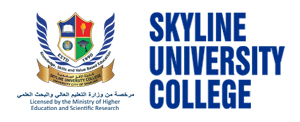Crime scene investigation deals with the collection and examination of evidence. Crime scene investigators work on issues such as collection of evidence, prevention of contamination, interpretation of evidence and possible reconstruction of the event.
Wildlife forensic specialists are involved with crimes that involve animals, including the illegal distribution of animals and animal products.
Forensic toxicology is a field involving the identification and revelation of illegal drugs and poisons. Toxicologists work to interpret the toxicity levels of drugs and their effects on bodily functions.
Forensic psychiatrists and psychologists assess the mental state of an alleged perpetrator, to determine whether a person is mentally fit to stand trial. They may be called on in front of a court to evaluate the psychological profile of the perpetrator.
Forensic linguists work to identify the identity and nature of the speaker by analyzing the contents of written and oral communication. They also determine whether two communications are from the same person or not.
Forensic pathologists determine the time and cause of death in cases of suspected murders or suicide. This involves post mortem examinations of deaths reported to determine the cause and the manner of death. (i.e. sudden and unexpected deaths or deaths due to accident or injury, suicide or homicide)
Serology is a field concerned with the study of blood serum. Serologists analyze blood and blood groups, and other bodily fluids to conduct DNA fingerprinting and arrive at a conclusion.
Odontology is a branch of dentistry dealing with the collection, assessment and evaluation of dental evidence. Odontologists identify bodies and skeletal remains through dental records, interpret bite marks, and reconstruct faces from skulls.
| Stream | Graduation | After Graduation | After Post Graduation | |
|---|---|---|---|---|
|
Path 1
|
Clear Class XII in Science stream | Pursue graduation in any science-related field or B.Sc. Forensic Sciences for 3 years | Pursue M.Sc. Forensic Sciences for 2 years | Pursue Ph.D for 3-4 years |
|
Path 2
|
Clear Class XII in Science stream | Pursue graduation in any science-related field or B.Sc. Forensic Sciences for 3 years | Pursue Post-Graduate Diploma in Forensic Sciences for 1-2 years | – |
|
Path 3
|
Clear Class XII in Science Stream | Pursue MBBS for 4 years | Pursue MD Forensic Medicine for 2 years | – |
[/td_block_text_with_title][td_block_text_with_title custom_title=”WORK DESCRIPTION” header_color=”#dd3333″ separator=”” tdc_css=””]
[/td_block_text_with_title]

[formcraft id=’72’]